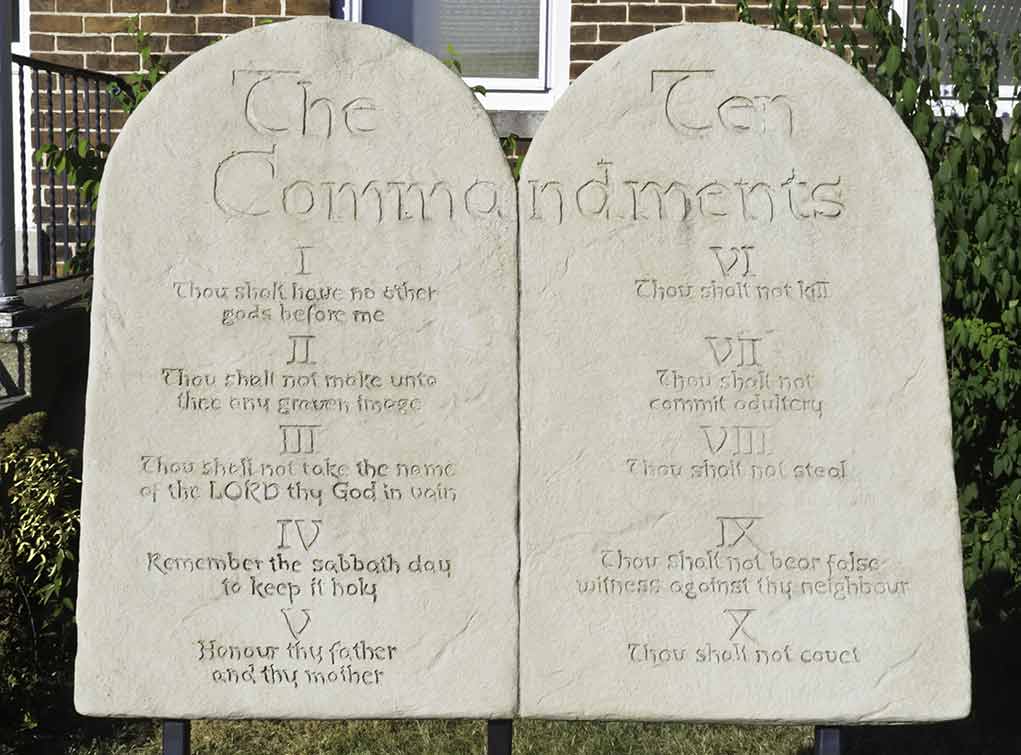
Texas schools reclaim moral foundations as Governor Abbott signs law requiring Ten Commandments displays in all public classrooms, a bold return to America’s Judeo-Christian heritage that has liberals in an uproar.
Key Takeaways
- Texas Governor Greg Abbott has signed legislation requiring all public school classrooms to display the Ten Commandments in a prominent 16×20 inch format beginning September 1.
- The law impacts approximately 9,100 public schools serving 5.5 million students across Texas.
- Schools may use district funds or must accept private donations for the displays that meet the specified requirements.
- Similar laws in Louisiana have faced legal challenges, with Louisiana’s law being blocked as unconstitutional.
- Supporters celebrate the move as reinforcing moral foundations while opponents claim it violates separation of church and state.
Texas Reinstates Biblical Values in Education
In a significant victory for traditional values, Texas has taken a definitive step toward restoring moral foundations in public education. Governor Greg Abbott has officially signed Senate Bill 10 into law, mandating that all public school classrooms across the state prominently display the Ten Commandments. The measure, which easily passed through the Republican-controlled legislature, requires each of the state’s 9,100 public schools to implement these displays by September 1, affecting educational environments for approximately 5.5 million students.
“Texas Gov. Greg Abbott announced Saturday that he signed a bill into law, that would require all public school classrooms in his state to display the Ten Commandments,” said Texas Gov. Greg Abbott.
The new law specifies that the Ten Commandments must be displayed in a poster or framed format measuring at least 16 by 20 inches, using the King James Bible language. Furthermore, the text must be clearly readable from anywhere in the classroom, ensuring that these foundational moral principles remain visible to all students. Schools can utilize district funds to purchase these displays but are not required to do so—they must, however, accept private donations that meet the specific requirements outlined in the legislation.
Returning to America’s Moral Foundations
The legislation represents a return to recognizing the historical importance of Judeo-Christian principles in American education and governance. Supporters of the bill emphasize that the Ten Commandments have played a crucial role in shaping our nation’s judicial and educational systems from their inception. Republican state representative Candy Noble articulated this perspective during legislative discussions, highlighting the historical significance rather than purely religious motivations behind the measure.
“The focus of this bill is to look at what is historically important to our nation educationally and judicially,” said Republican state representative Candy Noble.
Many Texas parents have expressed support for the measure, seeing it as a step toward restoring traditional values in an educational system that has increasingly drifted from moral foundations. The legislation comes at a time when many conservatives believe public schools have abandoned the core principles that once guided American education, replacing them with progressive ideologies that undermine traditional family values and faith-based morality.
“My thoughts are yes, I think that’s a great idea. We’ve lost a lot of trust in our school system and those 10 commandments are a great start,” said Laine Boyd.
Legal Challenges and Opposition
While the law represents a victory for traditional values, it faces potential legal hurdles. Similar legislation in Louisiana was recently blocked by federal courts as unconstitutional, and Louisiana officials have indicated their willingness to appeal to the Supreme Court if necessary. Critics argue that mandating religious texts in public schools violates the separation of church and state and fails to consider the diverse religious backgrounds of Texas students, which now include many non-Christian faiths.
This isn’t Governor Abbott’s first involvement with Ten Commandments displays in public spaces. In 2005, as Texas Attorney General, Abbott successfully argued before the Supreme Court for maintaining a Ten Commandments monument on the grounds of the Texas Capitol. This history suggests the governor is well-prepared for potential legal challenges to the new law and confident in its constitutional standing. The timing of this legislation aligns with a broader conservative movement to reassert traditional values in public institutions following years of progressive influence.
Despite predictable opposition from leftist groups, Texas continues to lead the nation in protecting traditional values and parental rights in education. The Ten Commandments legislation stands as a powerful symbol of the state’s commitment to moral foundations and historical recognition of America’s Judeo-Christian heritage in an era when such principles are increasingly under attack.




